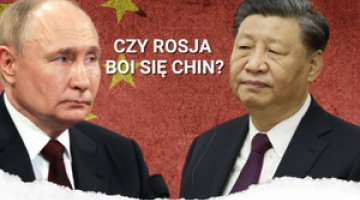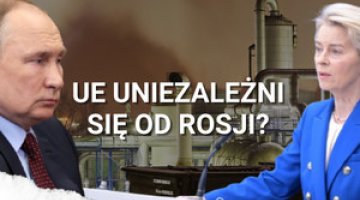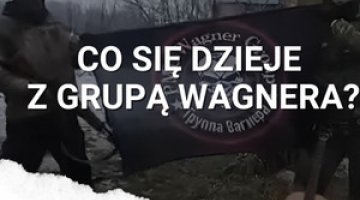Ethnic riots in Moscow
On 13 October, the Moscow district of Western Biriulevo saw protests by the local community in response to the murder of a young Russian by an immigrant from Azerbaijan. The protesters demanded the guilty man’s punishment, as well as the removal of the Pokrovskaya, the local wholesale fruit and vegetable market which employs immigrants, which in their opinion is a hotbed of corruption and criminality. Moreover, they demanded the resignation of the local government, which has profited from the immigrants’ presence, and a stricter state immigration policy. Representatives of Russian nationalist circles who participated in the protest transformed a peaceful event into a series of violent riots and clashes with the security forces.
The Biriulevo riots are a sign of the social tensions which have been rising in recent months concerning the presence of immigrants in Moscow and throughout Russia. The diverse composition of the participants and the violent nature of the protest shows that anti-immigrant sentiment in Moscow has been radicalised and is increasing in intensity. This has been brought about both by the influx of immigrants, and by government policies that have exploited ethnic-based conflicts for political or business reasons.
The underlying social unrest
The problems associated with the presence in Moscow of immigrants from the Caucasus and Central Asia are, in the opinion of the city’s inhabitants, the most serious social problem at present (according to the Levada Center, 55% of residents think so). According to estimates, about 2 million immigrants are currently residing in Moscow, while the capital’s official population is about 12 million. Native Muscovites feel the greatest distrust towards migrants from Central Asia and internal migrants from the republics of the Russian North Caucasus. The source of antagonism is primarily the difference in cultures of social relations, the economic successes of the diasporas’ representatives, and also the links some of the newcomers have with organised crime.
In recent months there has been a rise in tension connected with the presence of immigrants in Moscow. This was significantly inflamed by the rhetoric of the municipal government’s leaders, who during the campaign for the mayoral elections in September promised to strengthen the fight against illegal immigration in the city. These statements, which were a response to the expectations of most Muscovites, encouraged the community to reveal its nationalist sympathies, and sparked hopes of an improvement to the situation. The failure to keep these promises has increased the locals’ frustration at the government’s policies, as well as their feeling of powerlessness in the face of immigration. This rise in discontent was also stoked by President Vladimir Putin’s statement of 8 October that, contrary to earlier announcements, no visa regime with the countries of Central Asia will be introduced – a move which up to 84% of Russians actually favour.
In Biriulevo, which is a dormitory district inhabited by many immigrants, questions of immigration come into sharp focus. The long-standing trigger for this conflict was the Pokrovskaya wholesale market, which was controlled by the Caucasian diaspora and was, in the opinion of observers, a hotbed of organised crime and drug trafficking. Muscovites regularly complained to the authorities that the immigrants working there pestered the inhabitants of nearby residential estates, and that the vendors blocked the internal roads. So far, however, the authorities have ignored these complaints and turned a blind eye to the operation of the market, while deriving financial benefits in return.
The course of the riots
After the murder of the young Russian, on 12 October about 40 residents gathered in a peaceful rally in front of the local government offices, demanding the punishment of the accused and the tightening of immigration policy. The protest continued and escalated the next day, as it was joined by residents of neighbouring estates, including women, children and the elderly, and eventually numbered between one and three thousand participants. The situation was exploited by nationalist activists, who demonstrated great mobilisation and efficiently manipulated the protesters’ mood, joined the demonstrations and turned them into violent riots. First, they demolished the sales pavilion, and then burst into the Pokrovskaya market. After the most violent protesters had attacked the police units present at the scene, clashes broke out during which several people (including police officers) were injured. During the events 380 people were detained for a short time.
The authorities’ reaction to the riots
In response to the riots, the head of the Russian Ministry of Internal Affairs Vladimir Kolokoltsev ordered a full mobilisation of the armed forces in the city. The murder investigation was given special priority in the Federal Investigative Committee. Moscow’s mayor Sergei Sobyanin convened a special meeting of the crisis staff, and reported on the course of events to President Putin. The haste in taking these steps was caused by the proximity of the Muslim festival of sacrifice, during which Muslim immigrants pray in the streets every year, thereby provoking the Russians’ annoyance. In view of the increased ethnic tensions in the capital, these celebrations could offer an opportunity for provocations by nationalists.
On the other hand, the authorities’ response to the unrest suggests that some groups in Moscow’s establishment may be taking advantage of the citizens’ spontaneous protest as a pretext to further their business interests. The course of events showed that the law enforcement officers did not attempt to take a swift or decisive steps to extinguish the protests, and thus effectively allowed the riots to take place. This reaction contrasts with the police’s behaviour at events organised by the liberal opposition, when they have been able to disperse the protesters efficiently. This thesis may be supported by the fact that after the riots, the Moscow authorities decided to move the market to the outskirts of the city. What is more, according to some media reports, a new shopping and leisure complex is to be built on the site of the old market.
The Pokrovskaya wholesale market, which supplies most of the city’s agricultural production markets, is a profitable business (see Appendix). In the past a violent dispute over control of the business broke out between representatives of the Caucasian diasporas. Furthermore, the market occupied a valuable area in the residential district of Moscow, which is now likely to pass into the possession of the city authorities or private investors.
The Kremlin’s dilemmas
In Moscow, ethnically motivated crimes occur routinely, but until now isolated incidents of this type had not brought about such an intense reaction from the ordinary citizens. The protest in Biriulevo is primarily an expression of helplessness and desperation by people who see no legal way to interest the authorities in their problems, and so decided to take to the streets. The authorities’ reaction indicates that protests by local communities can be an effective instrument to pressure them into fulfilling their demands. Indeed, it was only under pressure from the protesters that they found the murderer whose action provoked the original protest. As a rule Moscow, which is a focal point for immigrants, often witnesses ethnic crimes, but the perpetrators of most of them manage to avoid punishment.
The authorities’ reaction to the Biriulevo incident indicates that they are aware of the scale of social tensions regarding immigration in the city, and want to prevent social unrest from spreading. After the riots in Moscow’s Southern administrative district, a special squad was appointed to take care of the illegal immigration problem, and a session of the Russian State Duma was called to discuss the riots.
However, this incident has shown that the Russian authorities have no effective long-term ideas for solving the problems of illegal migration. The government’s actions and rhetoric have revealed an incoherent vision of migration policy. On the one hand, the Kremlin is aware that the influx of migrant workers is beneficial in terms of economic development for the state. But on the other hand it has resorted to anti-migration and nationalist rhetoric, given that it enjoys strong support in the community, and that it could be used by the Kremlin’s opponents to strengthen their own social mandate; for example, the opposition activist Aleksei Navalny has increasingly tried to make political capital out of anti-migration rhetoric. In addition, the demand to reduce the number of migrants in Russia is largely incompatible with the state ideology promoted by the Kremlin which positions Russia as a multinational and multi-confessional state. It is also contrary to the Eurasian integration project, which aims to strengthen relations between Russia and the CIS region, including the countries of Central Asia. Therefore, it is expected that the social tension associated with the presence of immigrants in Russia will escalate, leading to further incidents whose effects may be difficult to predict.
Appendix
Wholesale markets in Moscow
In Moscow there are 16 ‘bases’ (wholesale markets) in which wholesalers purchase agricultural products. The largest of these are Pokrovskaya, the Dmitrovsky wholesale market and the Khlebnikovskaya ‘base’. All three are controlled by immigrants from different parts of the Caucasus.
The Pokrovskaya is the largest agricultural market in the CIS, with a daily turnover estimated at US$3-4 million; it provides 40-50% of all the fruits and vegetables sold in Moscow (these statistics do not include the major retail chains). The market’s formal owners are Igor Isayev and his relative Aliaskhab Gajiev, who come originally from Dagestan; they hold it through Novye Cheriomushki, a closed joint stock company whose director is Gajiev, and whose honorary president is Magomed Tolboyev, a distinguished military pilot and Hero of Russia, who is also a Dagestani. Isayev and Gajiev also own the RBA bank which operates Novye Cheriomushki. The company also owns large tracts of agricultural land in the Moscow oblast. Some Russian media have reported that de facto control over the market has been assumed by criminal groups of Azerbaijani-Georgian origin (these media reports named Levan Jangveladze and Alibaly Hamidov, the last-named having been killed two months ago).
The Dmitrovsky wholesale market, according to media reports, is owned by Timur Kanokov (a relative of Arsen Kanokov, the head of the Kabardino-Balkar Republic in the North Caucasus) and his business partner Artur Kardanov. Arsen Kanokov’s own assets include some fruit and vegetable retail markets in Moscow, including the Tishinsky. The Dmitrovsky market now hosts some traders from the old Basmanny wholesale market, which was controlled by immigrants from Azerbaijan (in 2006 its roof collapsed, burying 66 people).
The Khlebnikovskaya ‘base’, located near Sheremetevo airport, is owned by BIN, a company controlled by a businessmen of Ingush origin, Mikhail Gutseriev (better known as the owner of the Russneft and Russky Ugol companies) and his brother, Sait-Salam.
According to probable speculation, the murder in January 2013 of ‘Grandfather Hasan’ (Aslan Usoyan), who was recognised as one of Russia’s most important ‘godfathers’, was associated with the struggle for control of Moscow’s fruit and vegetable markets.
Appendix prepared by Wojciech Górecki





